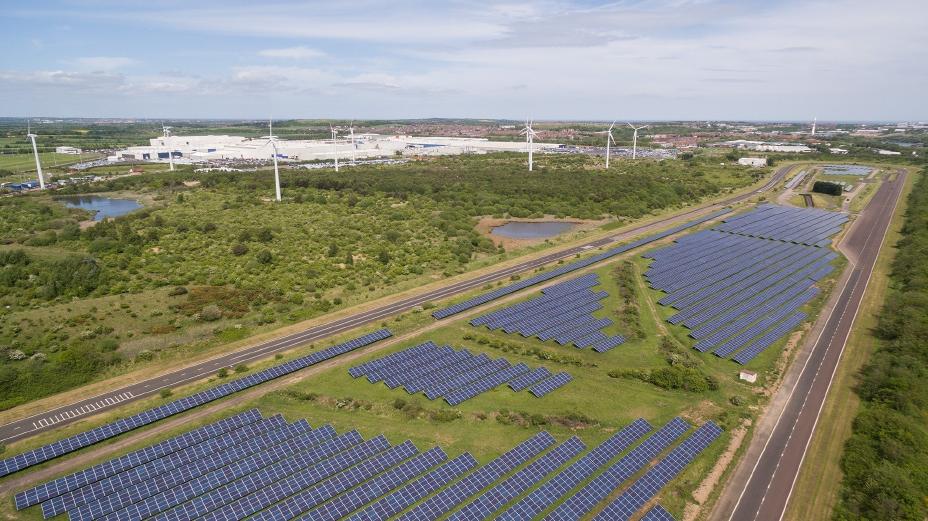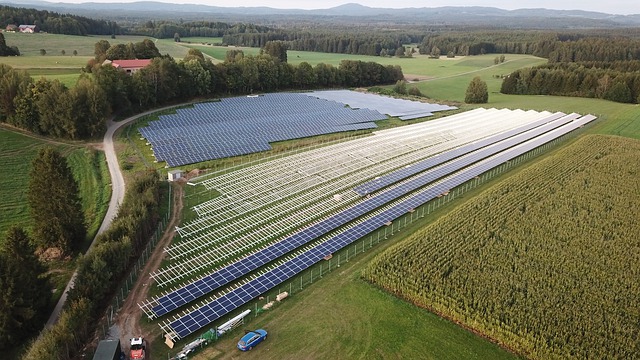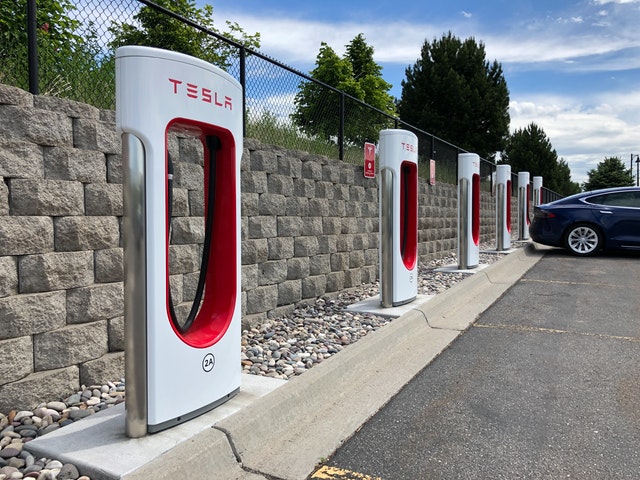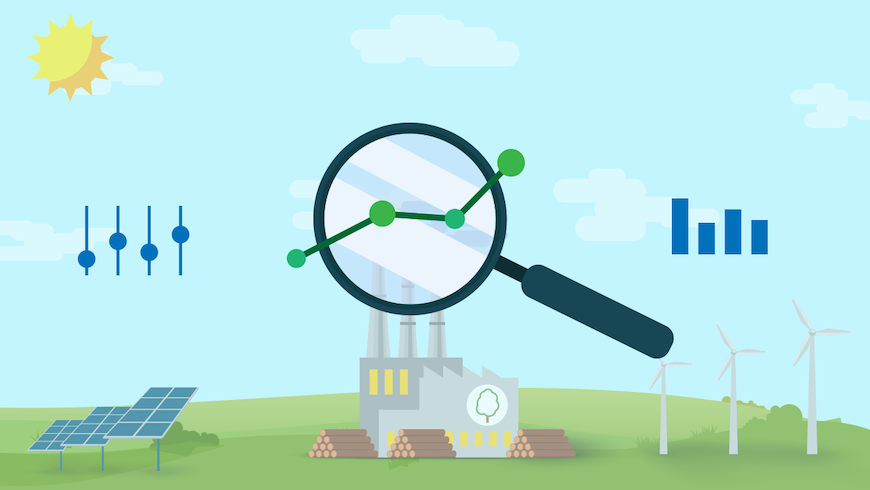On April 16, 2021, Mark Zuckerberg, Founder, and CEO of Facebook, announced that Facebook had become the largest buyer of renewable energy. Previously, we talked about the rivalry between Big Oil and Tech Giant companies going head to head to buy renewable energy. Now, tech giant company Facebook has won the race and set an example for the whole world.
Currently, the global operation at the company is now wholly supported by 100 Percent renewable energy. Furthermore, the company has also achieved net-zero emissions. Facebook now is one of the largest corporate buyers as well as users of renewable energy globally. Nonetheless, the company now has contracts for 6 GW (GigaWatts) of renewable energy across 18 states and 5 countries. Facebook sustainability is all harnessed through wind and solar. Likewise, the company stated, “All the 63 projects are new and are located on the same electric grids as the projects they all support”.
Recently, Facebook has struck and finalized a deal to buy renewable energy in India. The renewable energy will come from a local firm’s wind power project, the company’s first such deal in a South Asian Nation. In a joint statement with CleanMax, one of the Top Renewable Energy Companies in India, they said, “This 32 MW (MegaWatt) wind power project is a part of a larger portfolio of wind as well as solar projects that they are working together on. The project is located in Southern Karnataka State, and the joint effort is to supply renewable power into India’s electrical grid.”
Likewise, Clean Max will own as well as operate the projects. Meanwhile, Facebook’s role is to buy the power off the grid via environmental attribute certificates or else using carbon credits. Till now, half of the projects have already been commissioned and are generating power efficiently. Urvi Parekh, Facebook’s Head of Renewable Energy, said, “The company doesn’t own the power plants but rather has signed long-term electricity purchasing agreements with CleanMax. Therefore, this will help the project with the financial support it will need.”
Urvi Parekh followed up by saying, “Facebook also has a similar partnership with Sunseap Group, Teerenus Energy as well as Sembcorp Industries for renewable energy projects worth 160 MW (MegaWatt) of solar power. All these companies are Singapore-based. Renewable energy from all these projects is set to power Facebook’s first Asian data center within next year.” According to the International Energy Agency, Data Centers driving tech companies like Facebook consume as much as 1 percent of the World’s total energy.
To this date, the social media giant tech company has poured over USD. 8 billion into clean energy projects. This is whilst the latest 63 wind and solar projects added. This means the company has contracts in place for more than 6 GW (GigaWatt) of renewable energy. Although Facebook is set to run 100 Percent on renewable energy, another big tech giant company, Amazon, has a larger number with 6.5 GW worth of investment. Amazon will hold the largest corporate purchaser of renewable energy soon, but that doesn’t mean they will run 100 Percent on Renewable energy and overtake Facebook in the race. Amazon needs more numbers to reach the 100 Percent Renewable Energy landmark.
However, the company doesn’t seem to stop here and has already set its eyes on its next goal. Their next goal is reaching net-zero emissions for their value chain. The goal is named Scope 3 emissions, and the company hopes to achieve it by 2030. Therefore, hardware manufactured and physical materials, goods, and services, along with products made and developed by Facebook, will all produce net-zero carbon emissions. In addition, all the company plans to make their suppliers, business activities such as traveling and employee commuting eco-friendly.
Other tech giant companies like Amazon, Alphabet (Google), and Microsoft all have also pledged to operate carbon-freely. They are also putting their maximum effort toward achieving net-zero emissions. However, it is good to see all companies are taking vital steps towards tackling climate change, thereby creating a greener future.
Facebook’s Inside-Out Sustainable Office
If you don’t know, Facebook hasn’t only worked on buying and operating on renewable energy. Still, their dedication to a sustainable environment is also seen in the structure of their inside office. So along with fun games, sustainability is also embedded in the core of Facebook’s office.
Their London Head Office has efficient LED lights throughout their building. This resulted in the reduction of the company’s carbon emissions by over 41 tonnes a year. Likewise, in 2019, the company removed single-use plastic water bottles from their kitchen. Therefore, they saved more than 1.4 million water bottles and avoided over 200,000 kg of plastic waste.
During the same year, the company was awarded the ISO 50001 Energy Management certification across all sites in Ireland and the UK. This led them to join the ranks of giant companies known for their sustainable approach to real estate development. Moreover, Facebook works along with London Beekeeping Association and has developed a bee-friendly terrace in the London, UK office.
Also Read: Top Renewable Energy Degrees to be Renewable Energy Experts in 2021
Facebook’s Fight Against Climate Change and Earth Day 2021 Plans
To mark their success, the company has held an event on the occasion of Earth Day. Furthermore, the company is set to launch volunteer signups for the environmental organizations on its eponymous social platform. Facebook believes Earth Day is an opportunity to bring more together and share awareness on protecting the planet as a whole global community.
Currently, the Climate Science Information Center Page on Facebook has more than 1.3 million following people and gets over 100,000 visits per day. Eoghan Griffin, Sustainability Strategy Manager, EMEA at Facebook, said, “We have 2.8 billion monthly active users on Facebook alone as well as 3.3 billion people use all of our apps. Here we can amplify key messages regarding climate change”.
Similarly, Facebook is set to host an Earth Day Livestream in partnership with EARTHDAY.ORG. The virtual event will be streamed on Climate Science Information Center at 12:00 PM ET (6:00 PM CET) on April 22, 2021, Earth Day. World leaders, Public figures, Grassroots activists, and musicians will all talk about climate change and climate action at the virtual event.
Facebook will be addressing global challenges and climate crises through virtual events. Nonetheless, you can also make an impact and be part of this fight against climate change. Here are a few ways you can take action towards climate change as prepared by Facebook.
Previously in February 2021, according to the company’s statement, they were set to add a section to its climate-change information hub. This hub will feature facts from George Mason University, the University of Cambridge, and the Yale Program on Climate Change Communication. Featuring fact’s main motive is to identify as well as debunk the misinformation.
In partnership with the Yale Program in Climate Change Communication, Facebook ran a survey on its site in over 30 countries. As per the result, more than three-quarters of people in each believed in climate change. But, fewer people understood it was because of unsustainable human activities. However, more than 6 in 10 people in all countries wanted more information about climate change.
Most of the people demanding more information on Climate Change were from Nigeria. The good news is, almost 7 in 10 people from all countries supported the Paris Climate Accord. Most of the people from Europe also concluded that their national government should keep climate change in high or very high priority. Almost 86 Percent of People from Spain, 84 Percent from Italy and 81 Percent from France were the ones to conclude. In the UK, over 7 in 10 people felt the same way, whereas, in Saudi Arabia and Egypt, the numbers were fewer with 4 in 10 people.
Also Read: Top 15 Renewable Energy Company in Germany

 How it Works
How it Works Pricing
Pricing FAQ
FAQ Quiz
Quiz Contact Us
Contact Us






